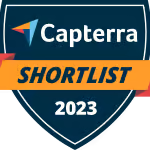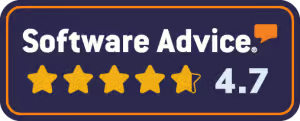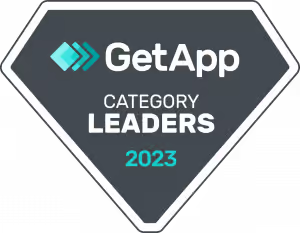You’re competing with Google and Facebook, but they’re so big, so massive, and so littered with content. As a publisher, how are you supposed to keep up? The key is in becoming the platform for your community.
It’s not about the quality of the content. It’s about the volume of content.
For far too long, as the publishing industry, we’ve been focused on creating a few pieces of high-quality content every month to serve our specific readership. But that’s not enough to compete with the literally thousands and millions of user-generated content that Facebook and Google can boast. But you know what else isn’t enough? Your newsletter rates. Yep, we said it.
The newsletter rates suck.
Harsh, we know. But think about it. How many of your readers are actually clicking through the content they sign up to read? What do your engagement and click through rates really look like? And be honest, we’re all friends here.
“The problem I’m seeing is the numbers,” explains Joel Pape, CEO and founder of MediaOS. “The content going into your newsletter should be so good and so worthwhile that your readers are going to find it interesting and click. But even some of these really well done brands are getting a really low click through rate, and the website traffic is clear down there. Some have 2 million emails going out in one month, but less than 100,000 page views. I would think the page views would be significantly higher.”
Become the platform for your community.
The problem is, our readers come once a month, scan through our 10 to 15 articles, then disappear until next month. To compete with the major tech platforms, you need more content, more engagement, and more eyeballs. You’ve got to stop thinking about yourself as just a website or just a particular brand, and start thinking of yourself as the platform, the information hub, for your community or niche. That’s where the real revenue is.
Think about it: Right now, your reader is coming to you once a month for your information on the segment you’re catering to. Then, they’ve got to go to 10 different places to get all the other information. Be the platform for your community. Be the platform and the one source of all things in that segment that you’re trying to cater to and the readers will come.
“In order for me to figure out what’s going on in town, I’ve got to go to all these different sources,” says Joel. “Or, the publisher can say, I don’t care if we produced it or not. I want to control the eyeballs. I want the eyeballs to all come to me.”
Aggregate. Curate. Customize.
What are Google and Facebook doing that make them so successful? They focus on curation over creation. They’re aggregating all this user-generated content, and they’ve become a one-stop shop for all sources of news and information—without much overhead at all because it’s far easier to aggregate content than it is to create it.
“I think publishers need to really look at not trying to say that you come to our site for only our content,” Joel says. “Publishers need to reconsider saying, ‘You come to our site to find all things that we produce and other things that someone else produced that we think is worthwhile.’ And it’s curated. It’s customized. It’s personal. I think if that can be achieved, then the publisher stops thinking about themselves as the website and as that one individual brand, and they start thinking about themselves as a platform.”
And that’s the game changer. That’s where the value is for the publishing industry. If we focus more on being the place, the platform to find all the news, entertainment, events—everything for our particular area or niche, we’ll see more success.
It’s not about being the only content in town. It’s about owning the eyeballs.
This approach is a total mindset shift, because you don’t have the budget to produce all the content of everything that’s happening in your community or niche, but you do have the budget to be the source of all the information and curate it all in one platform.
“If you control all the eyeballs, and you have everyone coming to you for everything, who cares if you produced the content,” Joel explains. “If you spend X dollars to produce one piece of content, you have to factor that into your advertising. But now if you say, they’re coming to our website for content we spent $0 on producing, then you get to show ads for the simple task of aggregating everything in one place.”
The revenue is in being the platform, period. And yes, that involves aggregating and curating stuff that you don’t own, but by owning the eyeballs, you’re able to monetize it nonetheless.
Focus on the real competition.
It’s easy to get wrapped up in the competition of the industry, of “oh, if I do this, then I’ll have to link to my competitors.” But, it goes back to the old saying, “An enemy of my enemy is a friend of mine.”
If you link to your competitor now—so what? If you slightly help out your competitor today, but tomorrow, you bring in more clicks, more content, more money, and you’re slowly winning out against Facebook and Google, isn’t it worth it?
“Publishers are competing with Google and Facebook, the mega platforms, but they’re so massive, and unspecific and so littered with stuff. People go there to be entertained. Publishers can win by being the aggregator of all things in their community or their market. Who cares if you have to link to your competitor? Give your competitor some money, and help their ads out for a little bit, but beat Google and Facebook. They’re the real competitor,” Joel said.
At the end of the day, that reader found your competitor’s article through your platform. So you know what they’ll do tomorrow? They’ll come back to you because you have everything in one place, and it’s all curated so they can scroll and find everything they want without having to go to 10 different sources. Once you achieve that, you’ve got it all. And they know it.






